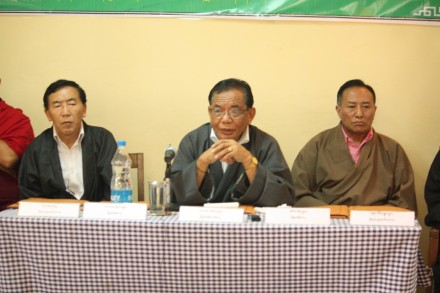
The Training is presided over by the Chief Justice Commissioner Ngawang Phelgyal, Justice Commissioners Ngawang Thupten and Tsering Dhondup. Law graduate Tenzin Lhundup LL.B and Rigzin Dorjee LL.B are the resource persons of the training.
In his inaugural speech, the Chief Justice Commissioner, Mr Ngawang Phelgyal spoke about the Tibetan Justice Commissions and its functions and importance in a democratic system of Central Tibetan Administration.
Keeping up with the development of democracy in our polity, the Tibetan Supreme Justice Commission was set up on 11th march 1992. Since then, the Tibetan Supreme Justice Commission has functioned as a legal protector of the Tibetan masses and has established local Tibetan Justice Commissions in all the Tibetan settlements including India, Nepal and Switzerland, he said.
He also stated that since 1997, the Tibetan Supreme Justice Commission has organised many workshops to increase the awareness about the Tibetan legal system among the masses of the Tibetan settlements and clusters.
A total of 18 participants from 8 different local Tibetan Justice Commission from Tibetan settlements in north east India and Nepal attended the Tibetan Lawyer’s Training including two participants from the Central Tibetan Administration’s Audit Department and one from the Cabinet Secretariat.
The program will run for 10 days and will impart training on Tibetan legal system and the laws and rules of the Tibetan Justice Commission especially the code of judiciary, the code of civil procedure, evidence act as well as the ethics of Tibetan lawyers.
